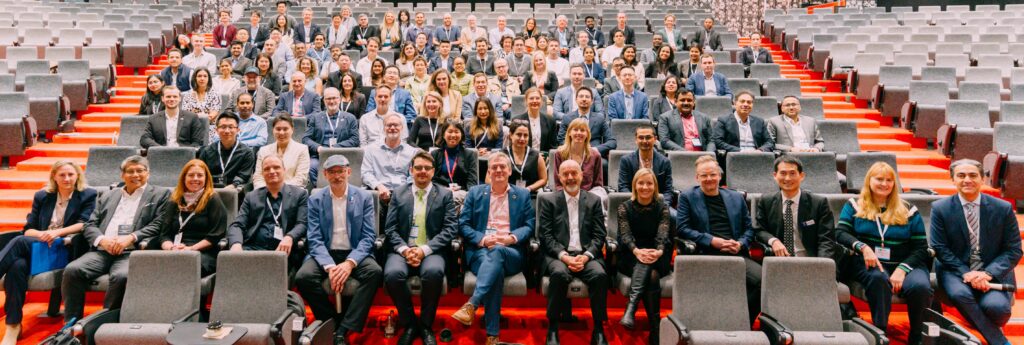Event date: November 18, 2024
The Decarbonising the Building Industry (DBI) 2024 Conference brought together thought leaders and changemakers to address the pressing challenge of decarbonising the built environment. Among the highlights were the keynote presentations by Professor Thomas Lützkendorf from Karlsruhe Institute of Technology (Germany) and Professor Harpa Birgisdóttir from Aalborg University (Denmark). Their discussions offered critical insights into whole-life carbon assessment, the importance of harmonised global standards, and the urgency of accelerating climate action.

Professor Thomas Lützkendorf: Global Targets and the Role of the Construction Industry
Professor Lützkendorf’s keynote highlighted the construction industry’s pivotal role in tackling climate change. He described the sector as both the “persecutor” and “rescuer,” responsible for significant emissions yet capable of driving transformative solutions. His presentation underscored the challenges of defining actionable targets, emphasising that existing timelines like 2050 may be too late. Instead, science-based carbon budgets suggest that decisive action is required well before 2032.
Lützkendorf also discussed the historical evolution of decarbonisation metrics, tracing shifts from coal and oil efficiency to today’s focus on global warming. He argued for more precise and harmonised standards, noting inconsistencies in current frameworks that lead to confusion among policymakers and practitioners. Importantly, he advocated for engaging stakeholders across the value chain—from designers and investors to regulators and society—to achieve meaningful impact.
Lützkendorf stressed the urgency of moving beyond “green talk” to real performance, urging the building sector to adopt stringent sustainability assessments and transition pathways to meet climate goals.
Professor Harpa Birgisdóttir: Denmark’s Journey Towards Whole-Life Carbon Reduction
Building on Lützkendorf’s global perspective, Professor Harpa Birgisdóttir shared Denmark’s pioneering approach to whole-life carbon reduction in the building sector. She outlined Denmark’s 12-year journey, which included the development of lifecycle assessment (LCA) tools, the introduction of national building codes with embodied carbon limits, and the establishment of ambitious reduction roadmaps.
Birgisdóttir emphasised the critical importance of addressing embodied emissions, which now account for 90% of building-related emissions in Denmark due to its reliance on renewable energy for operations. She shared data illustrating significant variations in emissions across building types, highlighting the potential for impactful reductions through best practices and innovative materials.
However, Birgisdóttir cautioned that even Denmark’s ambitious policies fall short of meeting the carbon budgets required under the Paris Agreement, with current practices exceeding targets by 220%. She also pointed to challenges in addressing resource overuse, such as increasing space consumption and frequent demolition. Her presentation concluded with a poignant reminder: climate action today is not just about the distant future but about safeguarding the well-being of those we love, including future generations.
Key Takeaways: A Shared Responsibility to Drive Change
The keynotes by Professors Lützkendorf and Birgisdóttir encapsulated the essence of the DBI2024 conference: addressing the climate crisis requires urgent, collective action across the entire building industry. Lützkendorf’s call for harmonisation and Birgisdóttir’s case study on Denmark’s journey provided complementary perspectives on how global and local efforts can converge to achieve meaningful change.
Their speeches reinforced the conference’s mission to bridge research, policy, and practice. As DBI2024 attendees engaged in discussions over the following days, the insights from these keynotes served as a powerful reminder of the sector’s responsibility—and its potential—to transform the built environment into a pillar of sustainability and resilience.

